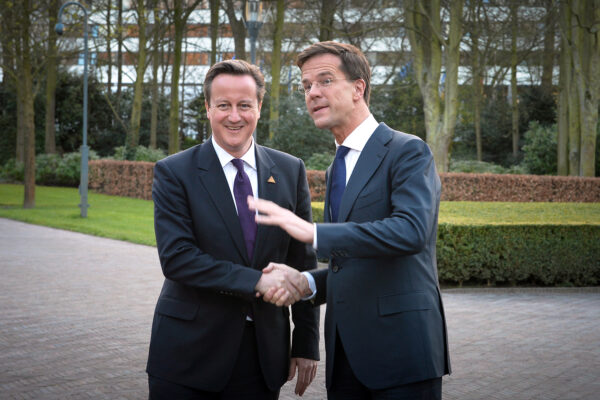
Dutch prime minister Mark Rutte is leading the opposition to Emmanuel Macron’s proposals for closer European integration, warning a liberal conference in Amsterdam this weekend that “integration for integration’s sake” will undermine public support for the EU.
“The EU needs to solve problems that we, as individual member states, cannot solve alone,” he said. “A federal Europe is not the answer to those problems and neither is a politics based on symbolism.”
There are two reasons Rutte is skeptical of Macron’s ideas, which range from creating a common eurozone budget to harmonizing tax rates and social security fees: fear of anti-EU populism and Brexit.
Anti-EU populism
Rutte and Macron have responded differently to nationalist challenges.
The Dutchman believes the EU is a boogeyman for disaffected voters. He has adopted some of their anti-federalist rhetoric, without giving way on the single market, in order to lure far-right voters back into the mainstream.
Macron believes leaders must make a bold case for European integration and provide concrete policy solutions for those who feel left behind. For example, reforming posted-workers rules, so blue-collar workers in the West don’t face low-wage competition from the East.
Both their strategies have been successful — to a point.
Rutte’s reelection in March and Macron’s victory two months later were hailed as setbacks for the anti-European right.
But the Freedom Party still placed second in the Dutch election and Marine Le Pen still won twice the number of votes her father did when he qualified for the presidential runoff in 2002.
Brexit
The Dutch originally encouraged Britain to join the EU to provide a free-trading, outward-looking counterweight to the protectionist French.
Now that the British are leaving, the Netherlands — the next-largest liberal economy in Europe — is seeking a new role for itself.
Earlier this year, Rutte hosted Baltic, Benelux and Nordic leaders in The Hague and told them they must “adapt to a European Union without our British partner at the table.”
The prime ministers of Belgium, the Netherlands and Luxembourg held a separate summit with their four Central European counterparts in Warsaw.
All worry that the balance of power in Europe might tilt in favor of the more integrationist member states.
France, Germany, Italy and Spain have 75 percent of Europe’s population between them.
But Belgium, the Czech Republic, Denmark, Estonia, Finland, Hungary, the Netherlands, Poland, Latvia, Lithuania, Luxembourg, Slovakia and Sweden have the votes to block proposals in the European Council — if they take a common stand.
